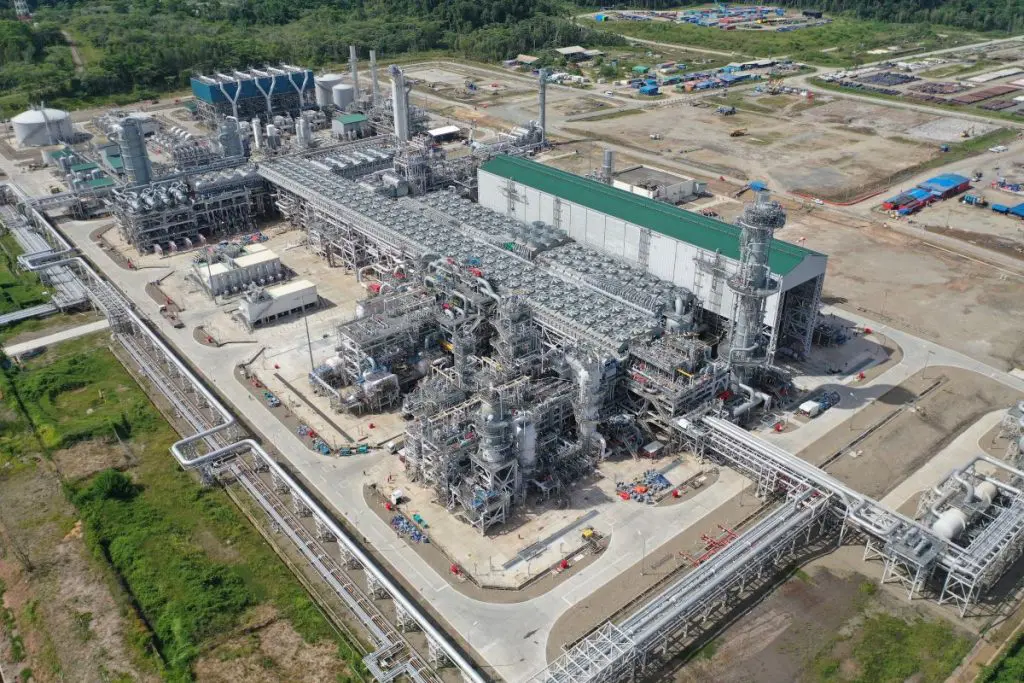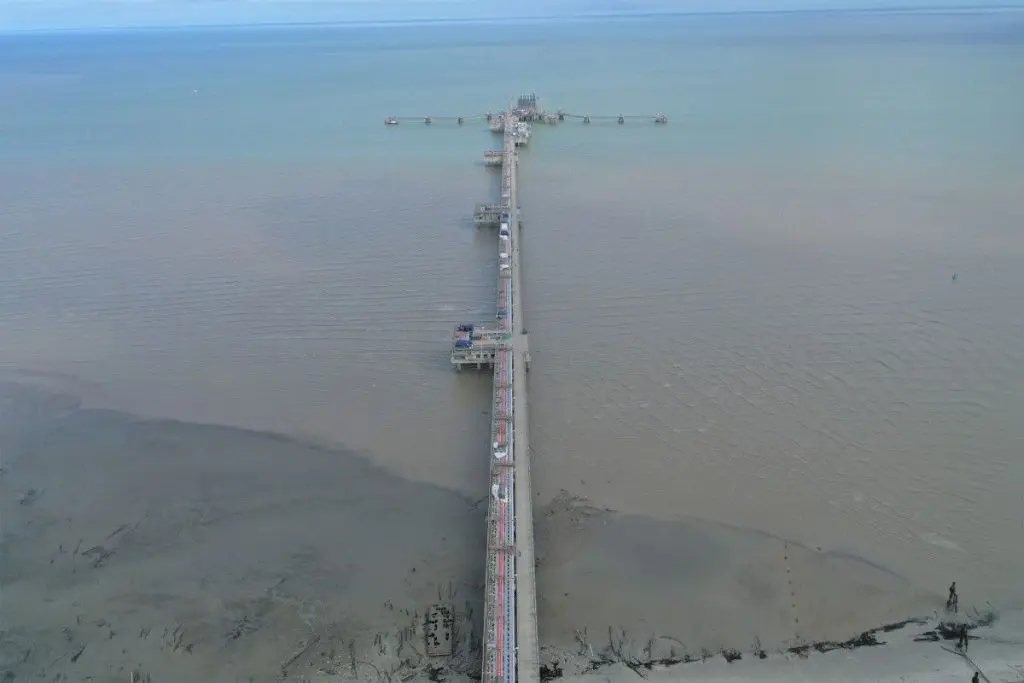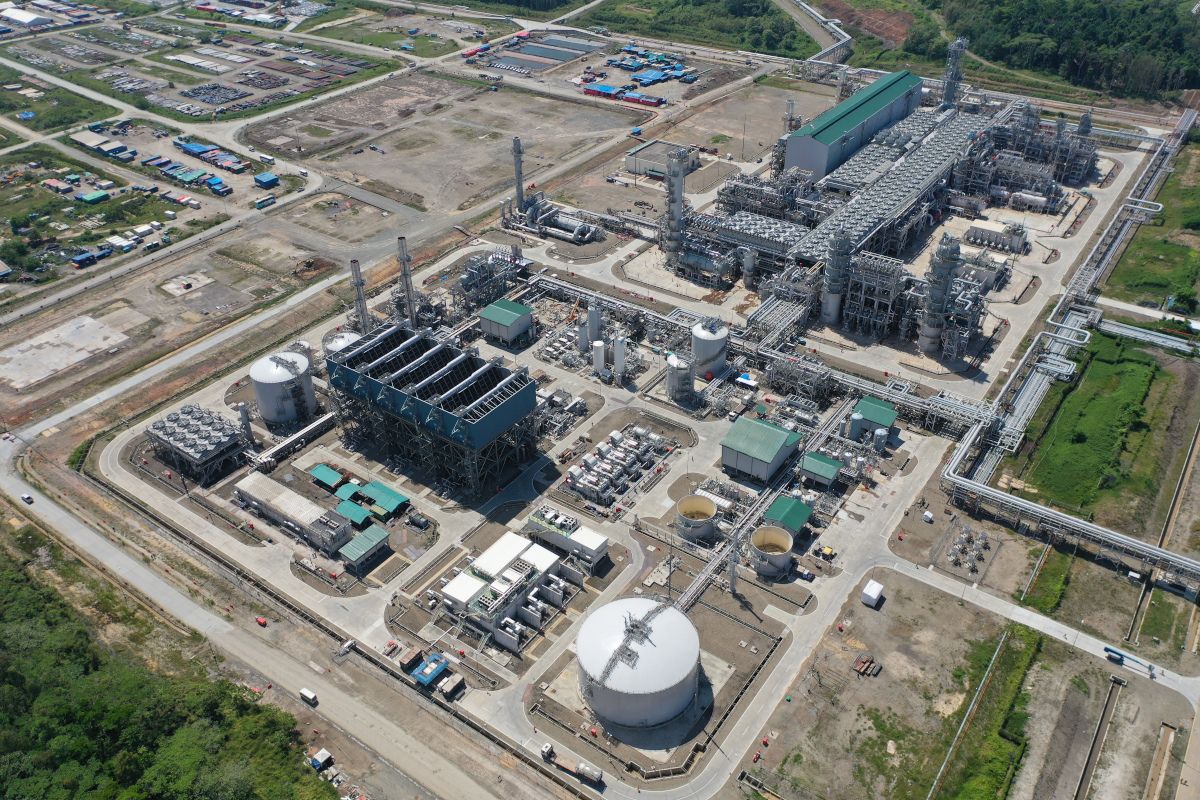A joint venture of Italy’s Saipem, Japan’s Chiyoda, and Indonesia’s Tripatra has recently handed over the third liquefaction train at the Tangguh LNG facility in Indonesia to UK-based energy giant BP.
The hand over for the Tangguh LNG expansion project located in Tangguh West Papua took place on August 1, according to a statement by Saipem.
BP’s CEO Bernard Looney said in August that construction and commissioning of the project were completed, and start-up “is now in progress” at the facility.
Operator BP expanded the existing 7.6 mtpa facility in Papua Barat province with the addition of the third liquefaction train with a capacity of 3.8 mtpa.
Saipem said the engineering, procurement and construction scope covered the LNG Train 3, an onshore receiving facility, and a new LNG jetty one kilometer-long.
The work also included an LNG and condensate loading berth, a boil-off gas recovery, utilities, flares, and an associated infrastructure.

“Several technical challenges”
Saioem said the project had faced “several technical challenges” due to the feed gas composition and to the remote plant location.
These challenges were overcome by implementing a “specific design and by developing an innovative execution strategy to effectively manage the extremely challenging logistics due to the lack of the most basic infrastructures,” it said.
At peak of the construction, more than 14,000 people worked at the project, with 200 subcontractors and vendors that participated to the success of the project.
Saipem said significant engagement with Papuan local communities during the entire execution was a “fundamental key success factor”.
“The site is in very the remote area, 3,000 Km from Java Island and remarkable marine fleet was established with 110 vessels and barges delivering more than 4.5 MFT to the Tangguh site from the marshalling yards arranged in Java Island,” the firm said.
Saipem also noted that the project implemented extraordinary mitigation measures to cope with the Covid-19 pandemic, occurred while construction was at peak, which allowed the project to continue with limited manpower in that difficult period.
Saipem did not mention anything regarding the start-up of the new train.
Local media reports in Indonesia suggest that production would start this month.

20-year extension
In December 2022, BP and its partners secured a 20-year extension for the Tangguh production sharing contract.
Under the deal signed with the Indonesian government, the Tangguh PSC, which consists of the Berau, Muturi, and Wiriagar PSCs, will be extended from 2035 to 2055.
Tangguh is the largest gas producing field in Indonesia, accounting for around 20 percent of the country’s gas output, and supplies feed gas to the Tangguh LNG plant, which began operations in 2009.
Its production reaches 1.4 billion cubic feet (Bcf) per day of gas through two LNG trains and will reach 2.1 Bcf per day once the third train comes online, according to BP.
BP Berau and its affiliates in Indonesia hold a 40.22 percent interest in the Tangguh project.
Other Tangguh production sharing contract partners are MI Berau, CNOOC Muturi, Nippon Oil Exploration, KG Berau Petroleum, Indonesia Natural Gas Resources Muturi, and KG Wiriagar Petroleum.
Besides the expansion, BP is also working on a carbon capture utilization and storage project at the facility.

